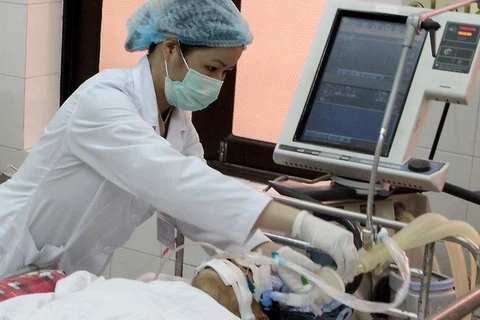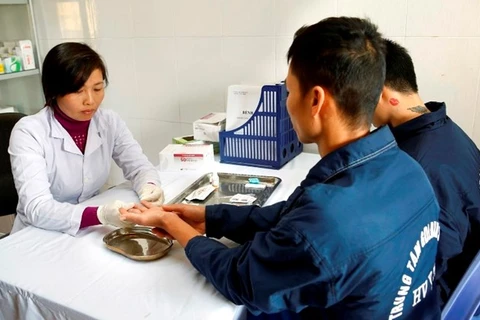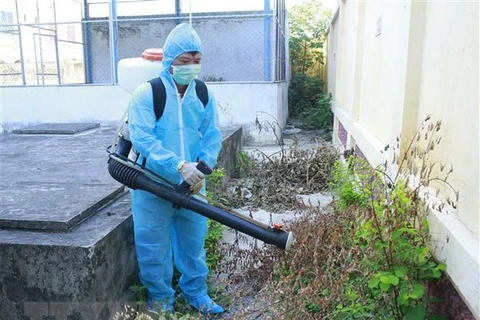Hanoi (VNS/VNA) - This year, the healthcare sector aims to reduce death rates caused by diseases and epidemics to increase life expectancy.
That was the key objective discussed by the healthcare sector during an online conference held on January 15.
The sector would focus on improving capacity and performance to help develop a fair, effective, quality and sustainable system to meet high demands of people.
This year, the sector has to fulfil two targets set by the National Assembly and the Government of ratio of 2.7 hospital beds per 10,000 persons, and 88.1 percent of people buying medical insurances, heard the conference.
In terms of preventive healthcare activity, the sector would strive to achieve early detection and control epidemics to reduce death rates by infectious disease as well as closely supervise and prevent infectious plagues at international border gates to avoid disease coming into the country.
It continued to make efforts to ensure safe vaccinations with the rate of 95 percent of children vaccinated, ensure adequate vaccine supply, and develop different types of vaccination services for people.
The Health Ministry plans to cooperate with the Education and Training Ministry to enhance capacity of school clinics, supervise school hygiene and control school-related diseases.
Testing activities to detect HIV-infected people would be expanded and focus on key areas and high-risk groups in prisons and mountainous areas through community-based and at home HIV testing. The sector strives to discover about 8,000-10,000 cases of HIV this year.
The HIV/AIDS treatment would be improved and distributed to 140,000 patients, and provide ARV medicine to the grassroots clinics.
The sector would continue to mobilise financial resources for HIV/AIDS prevention and control activities, and expand treatment through medical insurance.
Measures to reduce overcrowded hospitals and increase quality of healthcare services would be a priority.
This year’s objective includes food safety inspections at both production and retail levels.
In the meeting reviewing the national action plan on drug resistant prevention held in Hanoi on January 14, Deputy Minister of Health Nguyen Viet Tien warned that indiscriminate drug use and the purchase of drugs without prescription would contribute to increasing antibiotic resistance which caused harm to the whole community.
“The leading cause of drug resistance came from buying and selling antibiotics so easily and without doctors’ prescriptions”, Tien told the meeting.
"Vietnam is in a group of countries with a high rate of antibiotic resistance, even worse than many countries,” the deputy minister said.
Using drugs without doctor’s instructions had many risks, including multi-antibiotic resistant bacteria which has been spreading from one country to another threatening human health, said Tien.
In order to overcome the antibiotic resistance, Tiến said each person should raise awareness about effective use of drugs, including antibiotics, for themselves and the community as well as follow doctors’ instruction and prescriptions.
In addition, it was necessary to raise the responsibilities of those who are entitled to use drugs including doctors and pharmacists to strictly control the prescription and drug sales, the doctor said.
Meanwhile, Luong Ngoc Khue, head of the Medical Examination and Treatment Department, pointed out six main reasons for the drug resistance situation in Vietnam.
Those were unreasonably prescribing antibiotics with too low or too high doses or not depending on microbiological test results or prolonged uses; patients using antibiotics without prescription; misuse of antibiotics in aquaculture; inadequate infection control in health facilities and farms; lack of proper plastic waste disposal facilities; and the lack of new invented antibiotics.
Work on drug resistance prevention has exposed weaknesses including lack of cooperation, limited awareness of the community, health and agricultural workers to drug resistance is generally limited and modest capacity of the microbiological system, said Khue. – VNS/VNA
VNA

























